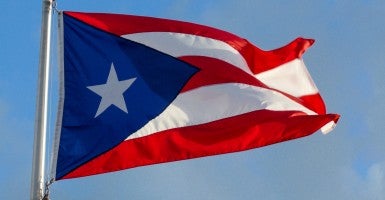The Puerto Rican government failed this week to make a $58 million payment of principal and interest on a specific outstanding debt that lacks strong legal protection.
The commonwealth’s move is part of its opening gambit, in what will surely be a lengthy contest with creditors.
The government is trying to pay as little of its debt as possible without completely losing access to future loans.
Puerto Rico’s government and creditors find themselves warring over a depleted treasury because the island’s stagnant economy plunged into a depression in 2006 and has not recovered.
Workers are moving to the mainland, and many non-working adults are entrenched in a welfare state that is too generous relative to prevailing wages.
The commonwealth’s bureaucracy is unresponsive and its regulations make Puerto Rico a tough place to do business.
The Puerto Rican government chose to default on this particular payment because it was due on Public Finance Corp. bonds, which require the legislature to appropriate funds for each payment.
By contrast, more secure bonds are tied directly to the commonwealth’s tax revenue or the assets of its public enterprises.
Thus, the Public Finance Corporation bondholders have the weakest claim in court.
Even if Puerto Rico completely repudiates its entire $1.1 billion in Public Finance Corporation debt, it will still have a public debt of around $72 billion.
Tactically, the default may help the government to divide its creditors into factions, each of which wants to make sure it gets paid – even at the expense of the others. The creditors, meanwhile, are working to maintain a unified front and demand fiscal and economic reform in the commonwealth.
Although the process is ugly, it ought to be worked out under existing laws and, when possible, in good faith.
The worst response would be for Washington to step in and tilt the scale toward one side or another.
Instead, Washington could help ease the tension by giving Puerto Rico freedom from the maritime Jones Act and the Federal minimum wage, which hamper the island’s growth.































